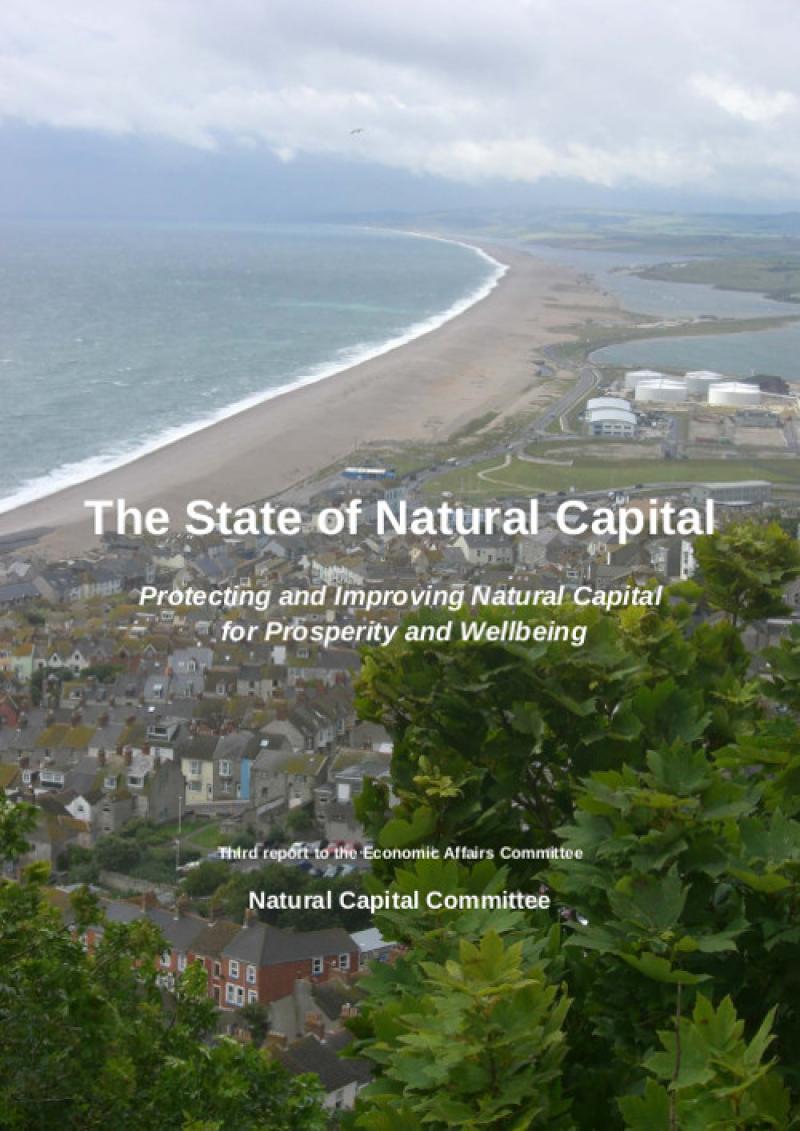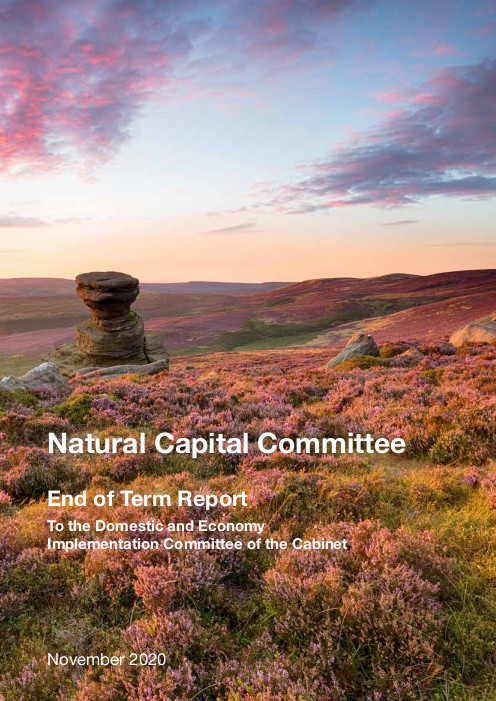The Natural Capital Committee
In carrying out its scrutiny and advice functions, the OEP will build upon work undertaken by the Natural Capital Committee (NCC).
The NCC delivered independent advice to government on protecting and improving natural capital. Natural capital includes ecosystems, species, freshwaters, soils, minerals, the air, and oceans, as well as natural processes and functions.
The NCC was chaired by Sir Dieter Helm. The committee’s initial term ran from 2012 to 2015. The second term ran from 2016 to 2020.
The committee’s end of term report was published on 2 November 2020.
Overview of the NCC’s work and its legacy
In this short film Sir Dieter Helm provides an overview of the work and the legacy of the NCC.
Advice on government’s 25 Year Environment Plan
The NCC helped the government develop the 25 Year Environment Plan, which is the government's first Environmental Improvement Plan.
The NCC also developed a framework for measuring progress against the 25 Year Environment Plan. This framework is set out in the NCC's Final Response to the 25 Year Environment Plan Progress Report.
This framework for measuring progress, alongside other advice, has laid the foundation for the OEP’s scrutiny of the 25 Year Environment Plan and subsequent Environmental Improvement Plans.
NCC terms of Reference
The NCC’s full remit and functions were set out in its terms of reference:
First term
1. Background
Our understanding of the value of nature is improving thanks to major recent studies such as the UK National Ecosystem Assessment (NEA) and at the international level the Economics of Ecosystem Services and Biodiversity (TEEB). The Government wants to ensure the value of the flow of services that nature provides and of the natural capital that underpins them is properly understood and reflected in the economy and policy-making. This will help ensure we can continue to prosper and grow economically by protecting nature and using its services sustainably.
The Natural Environment White Paper, therefore, announced the creation of an independent Natural Capital Committee (“the Committee”), reporting to the Economic Affairs (EA) Committee of the Cabinet to provide expert independent advice on the state of English natural capital.
2. The Role of the Committee
The Committee will play a key role in supporting the Government to ensure that natural capital is properly and consistently valued and accounted for in policy decisions and economic planning. By performing this role the Committee will help the Government ensure that our natural wealth is managed efficiently and sustainably, unlocking opportunities for increasing prosperity and wellbeing.
Specifically, the Committee will:
- provide advice on when, where and how natural assets are being used unsustainably. For example, in a way that takes us beyond some acceptability limits or non linearity thresholds, or in a way that diminishes some measure of comprehensive wealth;
- advise the Government on how it should prioritise action to protect and improve natural capital, so that public and private activity is focused where it will have greatest impact on improving wellbeing in our society. This will include advising the Government on tools and methodologies to ensure that the value of natural capital is fully taken into account in policy decisions and in economic planning;
- advise the Government on research priorities to improve future advice and decisions on protecting and enhancing natural capital. The Committee’s advice in this area will reflect consultations with the Research Councils and the academic community.
The Committee may:
- produce and publish annual reports to the EA Committee; it may also choose to publish a range of additional reports as appropriate;
- provide advice to Ministers in confidence; and
- provide responsive, ad-hoc advice if requested by the Secretary of State for the Environment (or by the EA Committee via the Secretary of State).
The Committee may not:
- perform a watchdog or advocacy role with respect to Government’s policy decisions;
- be policy prescriptive in its advice – unless requested by the Secretary of State for the Environment (or by the EA Committee via the Secretary of State); nor, • make decisions on classifications or statistical standards.
3. Committee Set-up and Structure
The Committee has been set up as an ad-hoc independent advisory body, comprising of a Chair and expert members. They come from disciplines including economics, natural and social sciences. They are widely recognised as leading experts in their respective fields and have been appointed and perform on the basis of their academic and professional background as opposed to representing any stakeholder interests. Expert Committee members are independent appointments made through open competition, in line with OCPA guidelines on best practice for making public appointments. Members are expected to act in accord with the principles of public life.
The Committee is supported in its work by a secretariat based in Defra. It may also set up expert working groups or rely on existing groups to take forward its analytical work.
Second term
1. Background
The Government is establishing the Natural Capital Committee (NCC) for the duration of this Parliament (through to September 2020), to provide it with independent advice on protecting and improving natural capital. The Government’s ambition is to improve the environment within a generation so that England has the best environment and is one of the most beautiful places in the world to live, to work and to bring up a family.
We are developing a 25 year environment plan to deliver this vision, to empower people, businesses and the third sector to protect and improve the environment, taking into account the use of data, tools, new technologies and techniques. Government has a large number of environmental data sets which others could utilise to achieve positive environmental outcomes.
The initial phase of the NCC concluded on 30th September 2015 and the Committee successfully met its Terms of Reference in full. It provided advice to Government on three main issues:
- The unsustainable use of natural assets;
- How action to protect and improve natural capital should be prioritised; and
- Research priorities.
2. The role of the Committee
Over this Parliament, the Government requires advice from the NCC on the development and implementation of the 25 year plan, which the NCC itself recommended. The Committee, therefore, will move into a new phase of work to help inform the plan’s development.
The new NCC will be vital in driving forward the next stage of natural capital work in England. This will include playing a key role in advising the Government on environmental assets at risk and ways of identifying priorities for improvement where the benefits are greatest, building on its work of the last three years. To do this the Committee will need to make use of appropriate knowledge, tools and techniques to ensure natural capital can be properly and consistently assessed, valued and accounted for in decision-making and economic planning. There should be a strong focus on embedding the use of open data, tools and techniques to facilitate positive action on the environment across the country, and consideration of national (England wide) and local delivery.
The Committee will advise on the importance of natural capital to sustainable economic growth, health and wellbeing and identify potential actions that could be taken to boost these.
The Committee will continue working with the Government and the Office for National Statistics to develop national natural capital accounts and work with businesses to develop and apply corporate natural capital accounts, recognising that much of our natural capital is privately owned. It will consider the international dimensions of natural capital in formulating its advice where appropriate. The Committee will also advise the National Infrastructure Commission to ensure that ‘green and blue infrastructure’ is appropriately considered within wider infrastructure discussions.
The NCC will continue to report to the Economic Affairs (EA) Committee of the Cabinet.
Specifically, the Committee will:
Advise Government and its delivery bodies on the development and implementation of an integrated 25 year environment plan to protect and improve our natural capital; making use of appropriate knowledge and tools to identify priority assets for protection and improvement.
In doing so, it should have particular regard to:
- Advising Government on how national environmental priorities could be delivered in partnership with the private, public and third sectors – including local community endeavours.
- Providing practical advice to Government on how people and businesses can reconnect with nature.
- The development of suitable metrics to be used to track progress against the plan’s objectives and benchmarking the English environment with the rest of the world;
- Advising Government on progress against the plan.
The Committee may:
- Produce and publish occasional reports to the Economic Affairs Committee;
- Provide responsive, ad-hoc advice if requested by the Secretary of State for the Environment on behalf of the Economic Affairs Committee;
- Provide advice to Ministers in confidence.
The Committee may not:
- Perform a watchdog or advocacy role with respect to Government policy;
- Be policy prescriptive in its advice or publicly comment on specific projects – unless requested by the Secretary of State for the Environment (or by the EA Committee via the Secretary of State); nor,
- Make decisions on classifications or statistical standards.
3. Committee set-up and structure
The Committee will be set up as an ad-hoc independent advisory body to Government, comprising a Chair and members with expertise in the fields of economics, natural and social sciences, accounting, statistics, data, technical and both local and national delivery.
Members of the Committee will be widely recognised as leading experts in their respective fields and have been appointed and perform on the basis of their professional background as opposed to representing any stakeholder interests. Members are expected to act in accord with the principles of public life.
The Committee will be supported in its work by a secretariat based in Defra. It may also set up expert working groups or rely on existing groups to take forward its work.
Membership of the NCC
At the end of its second term, the NCC consisted of seven experts: Sir Dieter Helm (Chair), Professor Melanie Austen, Professor Ian Bateman, Professor Christopher Collins, Professor Paul Leinster, Professor Colin Mayer, Professor Kathy Willis. The member biographies from 2020 are as follows:
Sir Dieter Helm CBE (Chair)
Dieter is an economist specialising in utilities, infrastructure, regulation and the environment, and concentrating on the energy, water, communications and transport sectors primarily in Britain and Europe. He is a Professor at Oxford University, a Fellow of New College, Oxford.
Professor Melanie Austen
Melanie is Professor of Ocean and Society at the University of Plymouth. For the last 20 years, she has been leading national and international collaborative and interdisciplinary marine research projects that support sustainable marine policy, environmental management, communities and their wellbeing and industry. She is a member of the Joint Nature Conservation Committee (JNCC), was the first Chief Scientific Advisor to the UK’s Marine Management Organisation (MMO), is an Honorary Professor at the University of Exeter medical school, and a member of several Expert Advisory Groups.
Professor Ian Bateman OBE
Ian is Professor of Environmental Economics and a Director of the Land, Environment, Economics and Policy Institute (LEEP) at the University of Exeter. His research interests focus on ensuring sustainable wellbeing through the integration of natural and social science knowledge within economic analysis, public and private sector decision making and policy. Particular interests lie in the fields of quantitative analysis, integrated modelling and the valuation of non-market benefits and costs.
Professor Chris Collins
Chris is Chair of Environmental Chemistry at the University of Reading. He is the Natural Environment Research Council Soils Coordinator and chairs Defra’s Hazardous Substances Advisory Committee, providing expert advice to the UK government on how to protect the environment and human health via the environment from chemicals. His research focuses on determining the factors controlling exposure of biota to environmental pollution and the role of soil organic carbon in modifying pollutant exposure and the parallels between pollutant and carbon cycling in soils.
Professor Paul Leinster CBE
Paul is Professor of Environmental Assessment at Cranfield University and was formerly Chief Executive of the Environment Agency. He has over 40 years of practical experience in environmental management, science, policy development and regulation. Before joining the EA in 1998, Paul worked in the private sector for a number of major companies. He has a particular interest in translating research into effective policy, regulatory, operational and governance measures and in natural capital and ecosystem service approaches to environmental management. Paul has a number of nonexecutive roles.
Professor Colin Mayer CBE
Colin is Professor of Management Studies, Saïd Business School at the University of Oxford. He is an expert on all aspects of corporate finance, governance and taxation, the regulation of financial institutions and the role of the corporation in contemporary society.
Professor Kathy Willis CBE
Kathy is a Professor of Biodiversity and Head of the Long-term Ecology laboratory at the University of Oxford. She is also the Principal of St Edmund Hall, one of the Colleges that make up the University of Oxford. Until recently, she was the Director of Science at the Royal Botanic Gardens, Kew. She has over 30 years of research experience focusing on modelling and remotely determining important landscapes for biodiversity and ecosystem services across the world. Most recently, she has been leading a research team to develop new and emerging models and technologies to assist land managers in decision making to ensure the best outcomes for business and biodiversity.
The legacy of the NCC
The NCC's advice to government, research, and publications on improving the natural environment are catalogued below under five headings
- Advice on Environmental Improvement Plans
- Advice on net gain
- Asset based framework for measuring changes in natural capital
- Embedding natural capital into decision making
- Annual reports and government responses
In addition to these publications, the NCC YouTube Channel contains a series of short films introducing the Committee’s work, recordings of the 2020 Natural Capital Conference and Science Symposium and the 2020 Natural Capital Accounts Roundtable.
Advice on Environmental Improvement Plans
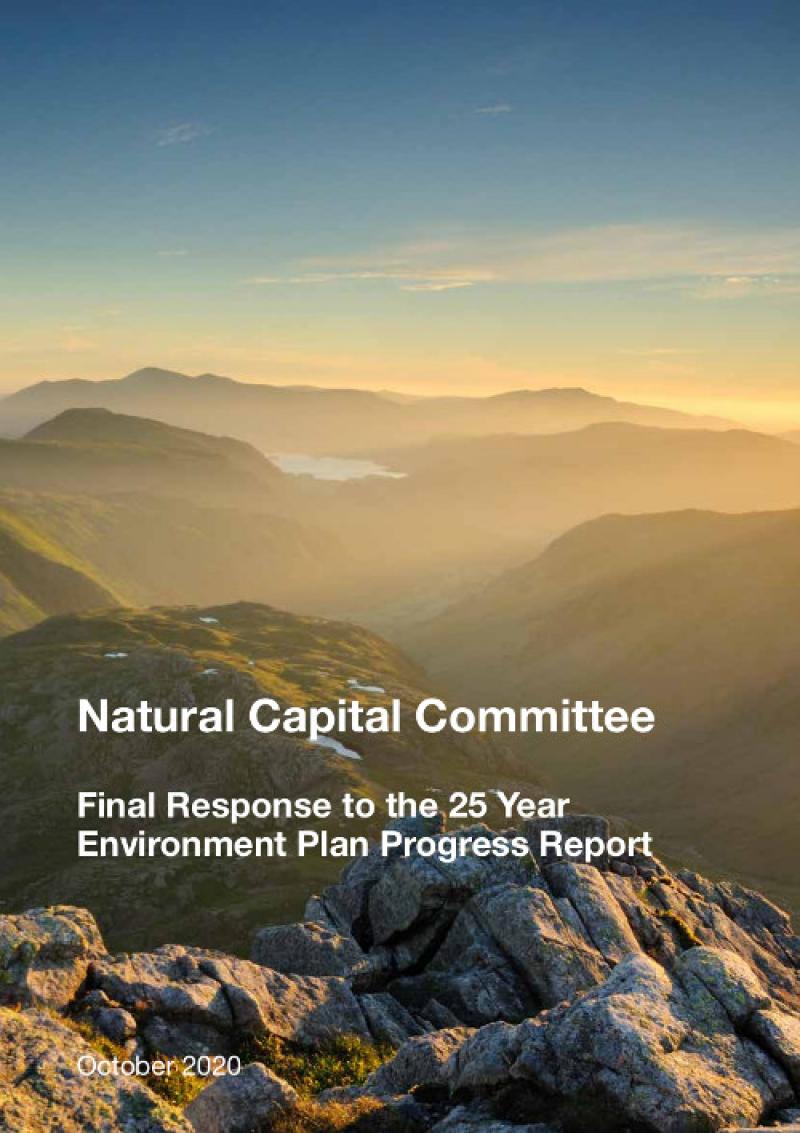
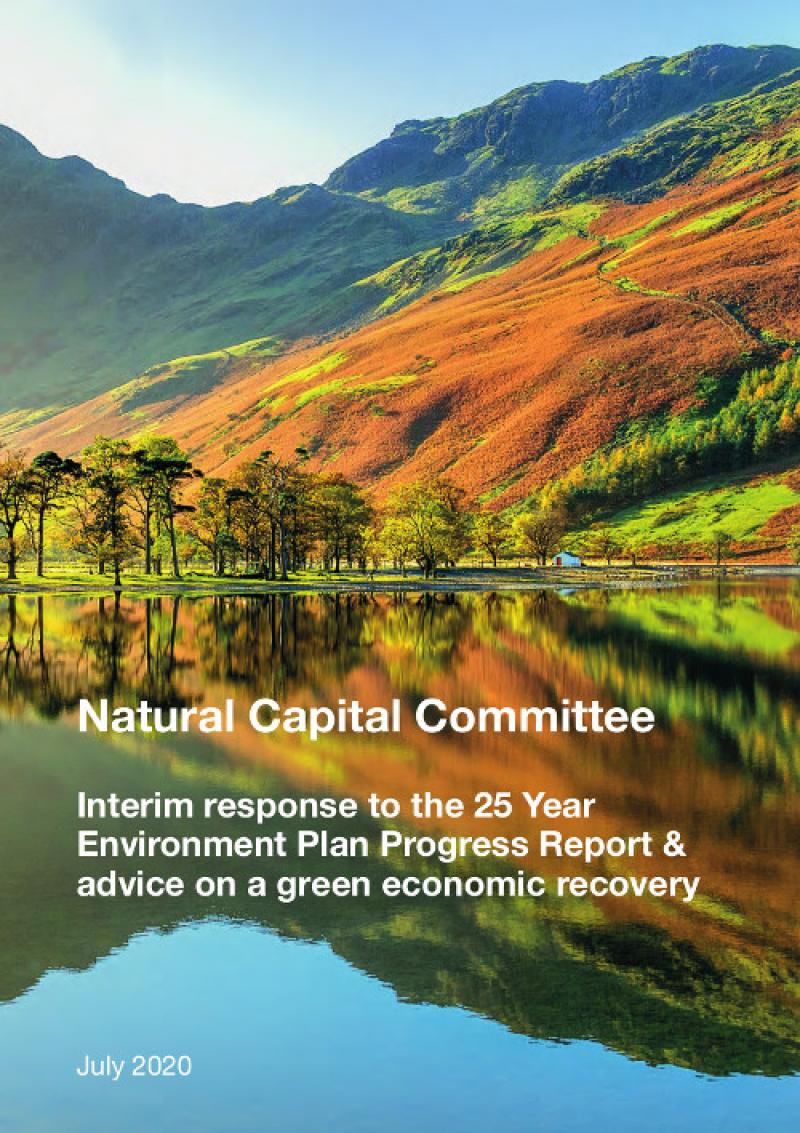


Advice on net gain


Asset based framework for measuring changes in natural capital







Embedding natural capital into decision making
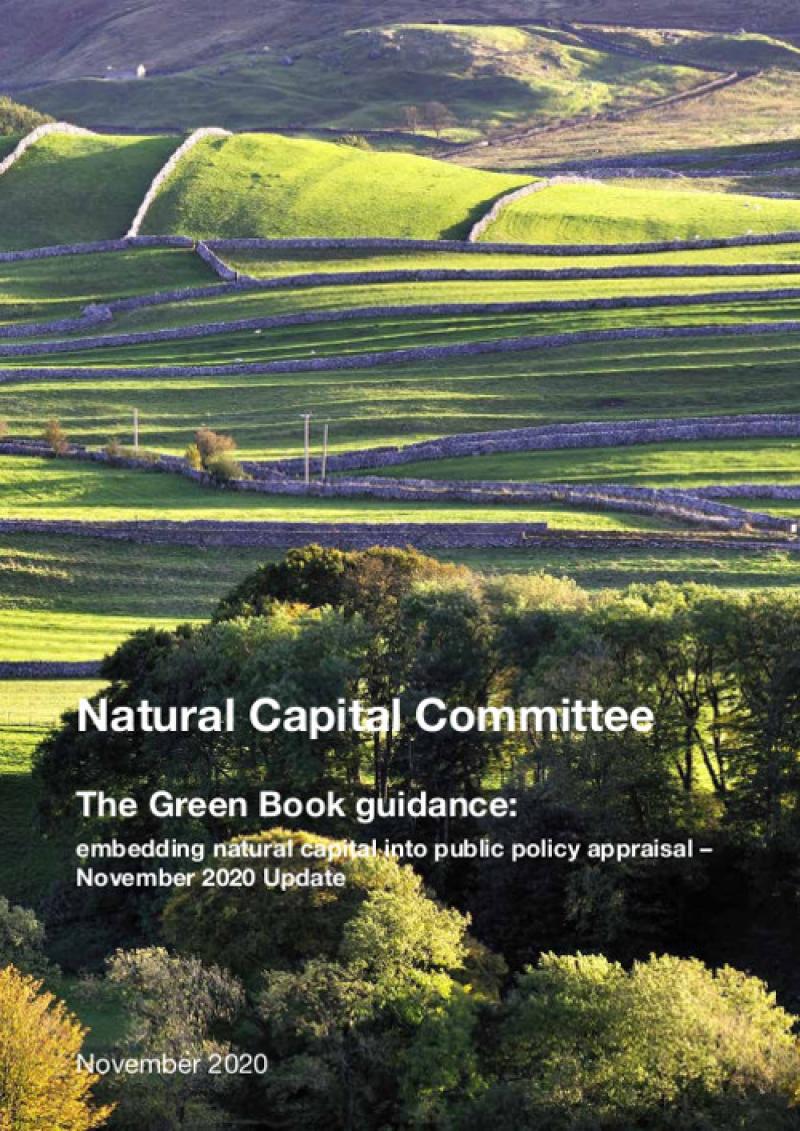
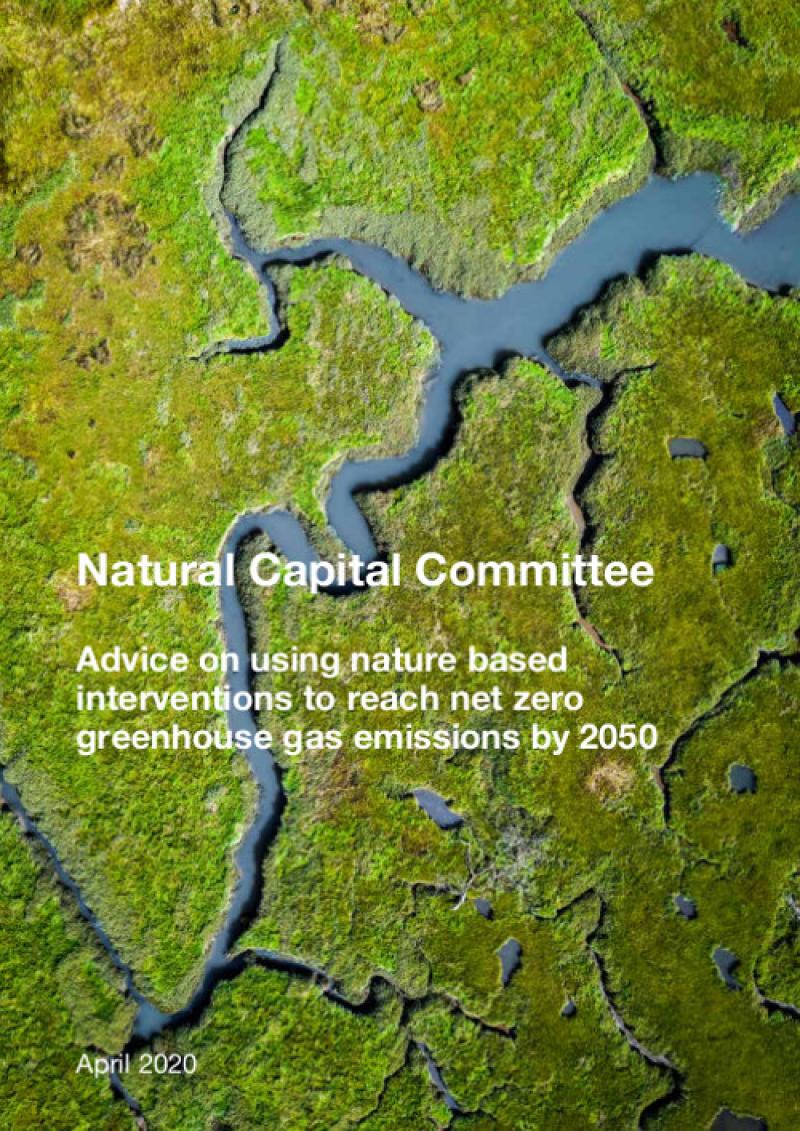





NCC annual reports and government responses to these reports






